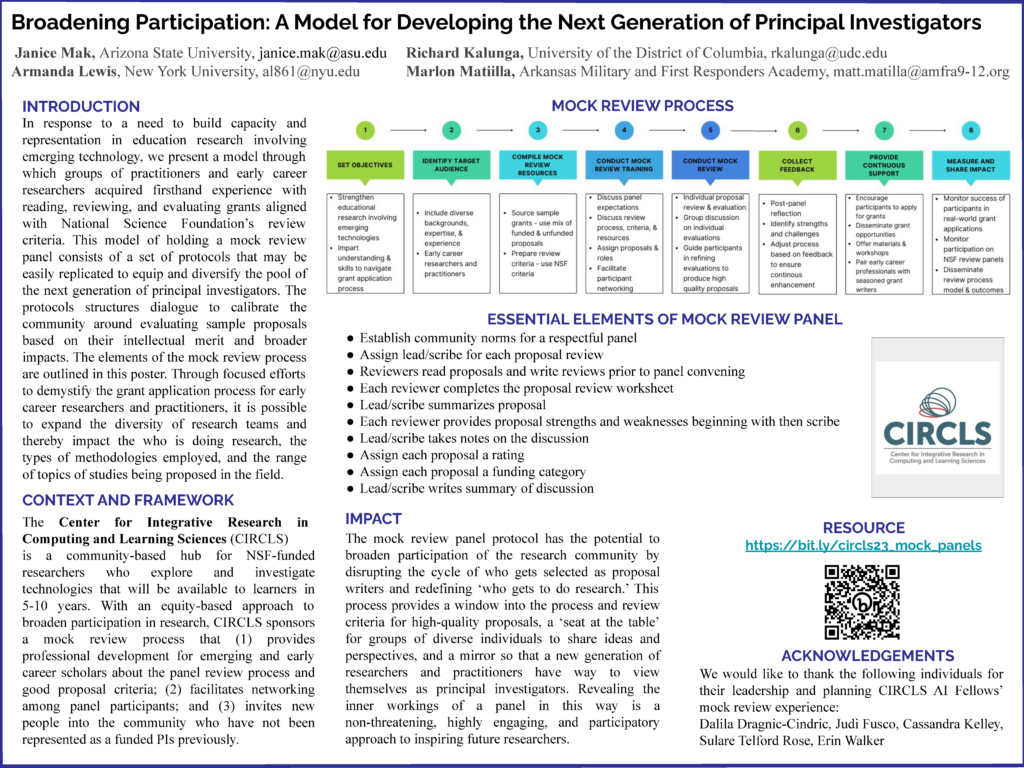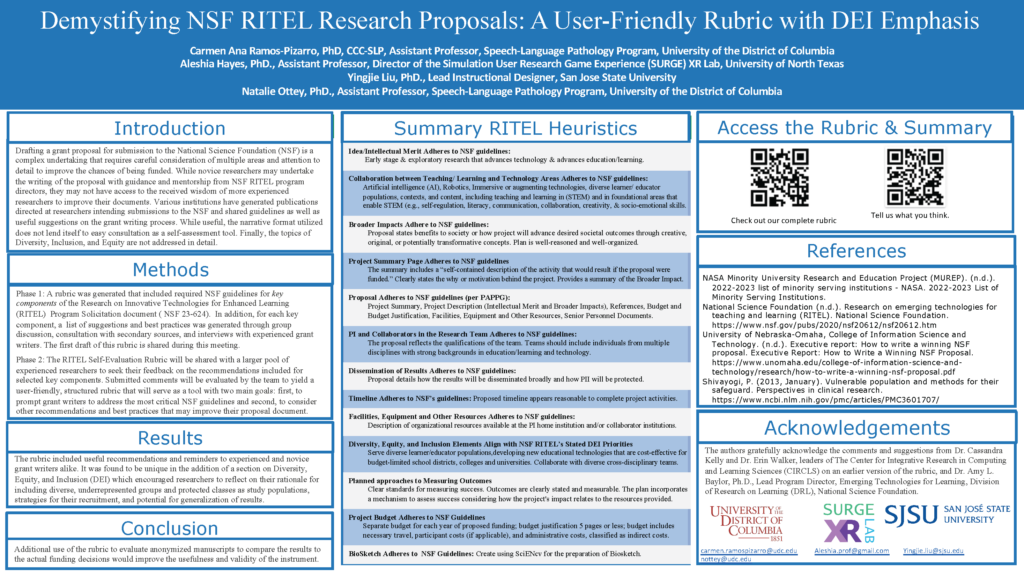AI CIRCLS recently completed a Mock Review Panel series with 42 participants. The goal of this series was to broaden participation in current and future NSF programs and offer professional development to the next generation of principal investigators. Participants reviewed and evaluated proposals on emerging educational technologies using the NSF review criteria and reflected on the insights that emerged from the process. The program explicitly outlined what to expect when participating in the review process, as well as how to be considered for serving on a future review panel. A Fellows Tier of select participants (see list below), who consisted of researchers, doctoral candidates, K-12 educators, and industry professionals engaged in additional professional development activities related to grant proposal preparation and synthesized their reflections from the overall experience (see Summary of Synthesis Themes and their poster presentations from our CIRCLS ’23 Convening below).
Mock Review Panels 2023 Fellows Tier:
Sindhu Chennupati, Arizona State University
Tina Cheuk, California Polytechnic State University
Valerie Crawford, Glades Middle School
Aleshia Hayes, University of North Texas
Richard Kalunga, University of the District of Columbia
Armanda Lewis, New York University
Yingjie Liu, San Jose State University
Janice Mak, Arizona State University
Marlon Matilla, Arkansas Military and First Responders Academy
Natalie Ottey, University of the District of Columbia
Carmen Ana Ramos-Pizarro, University of the District of Columbia
Team Projects:
Team 1 Project
Broadening Participation: A Model for Developing the Next Generation of Principal Investigators
Authors: Janice Mak, Marlon Matilla, Armanda Lewis, and Richard Kalunga
-
Abstract: In response to a need to build capacity and representation in education research involving emerging technology, we present a model through which groups of practitioners and early career researchers acquired firsthand experience with reading, reviewing, and evaluating grants aligned with National Science Foundation’s review criteria. This model of holding a mock review panel is a promising approach to equipping diverse groups of potential grant applicants to engage in dialogue to calibrate around defining what constitutes a high quality proposal based primarily on whether or not the sample proposals exhibit intellectual merit and broader impacts. The elements needed to implement a successful mock review process and suggested protocol are outlined in this poster and potential spaces to apply this mock review process. Through focused efforts to demystify the grant application process for early career researchers and practitioners, it is possible to expand the diversity of research teams and the research done in
the field.
Team 2 Project
Demystifying NSF RITEL Research Proposals: A User-Friendly Rubric with DEI Emphasis
Authors: Carmen Ana Ramos-Pizarro, Aleshia Hayes, Yingjie Liu, and Natalie Ottey
-
Abstract: This project aims to demystify grant solicitation by unpacking it into a user-friendly rubric format that includes essential items researchers should address and valuable best practices recommendations. Suggested guidelines for Diversity, Equity, and Inclusion (DEI) are highlighted for consideration in all project phases.
Rubric for Self-Evaluation of NSF RITEL Grants in Progress and Project Poster (PDF)
If you’re interested in plugging into any of these projects or learning more, please let us know. We welcome any feedback and input that our community has to offer. Please reach out to us with any thoughts or recommended topics for future exchanges!


